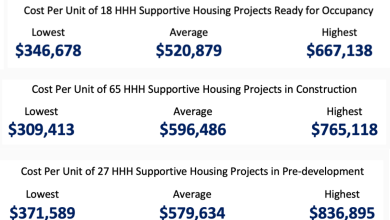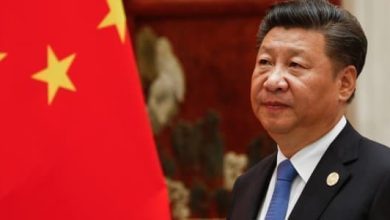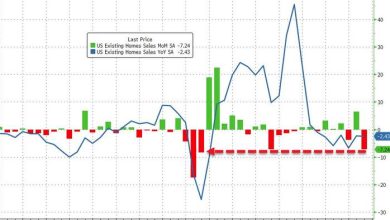Central Planners Don’t Know What’s Best for You

For all the great value in Heather Heying and Bret Weinstein’s new book, A Hunter-Gatherer’s Guide to the 21st Century, we find plenty of enmity toward markets and market forces. The market’s avarice and ravenous desire for growth is bad for the planet, and increasingly bad for us; it distorts incentives in health, in medicine, in education, and even mate selection; it doesn’t know what we “truly” want and induces us into bad choices: “What we ‘want,’ and what the market is glad to hand us, is short-term gratification that rarely accounts for what is best for us long term. A market that is unregulated will tend to embody the naturalistic fallacy—the mistaken idea that ‘what is’ in nature is ‘what ought’ to be. When we let such unregulated markets lead, we are fed directly into the naturalistic fallacy. Just because you can doesn’t mean that you should” (final chapter).
As a first-pass public choice argument, we should be very skeptical about such propositions and what they practically involve. Individually, flawed as we are and with limited knowledge about the world and ourselves, we might not know what is objectively “best for us long term.” But the relevant comparison imagined is that somebody else does—and that that somebody can identify it, correctly trade it off against other values and goals we may have, and ultimately enforce it. It’s the mistaken belief to think that governments—that enlightened agency that performs the “regulating” part—can wield magic wands, know what is unknowable for the rest of us, and force us (or nudge us … ) into behaving better. Oh, and that once such a pristine corrective system is in place, it won’t deteriorate into power plays, paternalism, or become corrupted by ideologies or special interests of one kind and another.
The counterfactual against which “poor outcomes in unregulated markets” are pitted against is, to put it mildly, laughably unreal.
As a deeper level, it’s not clear what this argument even identifies. Taken at its best, it means that there’s a conflict between what we think is best for ourselves in the near future versus the longer perspective. I may know that, subjectively, my highest desire is to stay fit over the long term by hitting the gym; this desire is undermined by how comfortable the sofa feels right now, and how yummy that delivery pizza is. This conflict between long-term and short-term ends across different domains is, if anything, a human universal: regardless of social organization or market structure, this conflict emerges. It’s not clear that it is created or made worse by markets/greed/ruthless capitalism.
Making matters worse, presumably, the fast-food chain and the sofa maker are equally in competition with the gym or workout gear retailer for the dollars that mark my final spending decision. Why would *the market* only operate on one side of that equation (the short term)? To think that it is the only thing that incites us away from what we today think is beneficial in the long term in favor of things that are satisfactory short term is an odd view of the human condition.
The logic of the market pushes production and consumption patterns toward fulfilling our aims in better, cheaper, or faster ways. It is, at worst, agnostic about whether the things we want are good or bad, healthy or not, beneficial or not—and whether they’re good, healthy, or beneficial over short, medium, or long time horizons.
What’s fascinating is that it comes out of two eminent evolutionary biologists. This otherwise insightful power couple is ridiculously close to grasping how very little separates economics from the subject of their own studies: ecology. I’ve made that connection explicit before on mises.org, even pointing to the shared roots of the words. Here are the main points of similarity:
- Interventions don’t usually work, and they often do many more things than their proponents initially foresaw.
- Complex systems are too complex to do much about: the correct policy conclusion from that is to largely leave them alone, or at least to not meddle with them more so than you think absolutely necessary. Micromanaging complex, adaptive systems is a bad idea.
- Everything involves tradeoffs: getting more of one thing means getting less of another or it requires you to expand the production possibilities frontier.
On the last one, interestingly enough, Heying and Weinstein correctly observe in the book that we should lean against the possibility of such explanations/interventions whenever they’re proposed: “We can easily intuit that, if you’re a deer, in order to make a larger set of antlers, something else has to give. You’ve got to borrow from elsewhere in order to get bigger antlers—perhaps you lose some bone density, or spend down other reserves. Under some conditions, perhaps you could just start eating more, and grow more antlers, but this raises the question: if it were that simple, and eating more benefited you in this easy way, what prevented you from doing it before?”
If there is some epistemic or institutional reason why markets can’t solve (or improve upon) an imagined problem, there is little reason to think that a real-world government could either. An ideal, uncorrupt, perfectly knowledgeable government might—remember Madison’s “If men were Angels”—but is that really on the table?
That’s the position in which most intelligent-design governments find themselves—of seeing a flaw and deciding to “fix” it. The correct question, from both an evolutionary and economic perspective, is the one posed by Heying and Weinstein: If it were so easy, “what prevented you from doing it before?” The market test, like ecology’s evolutionary test, tends toward optimization; if it wasn’t doing something, there probably were good reasons against doing it or insurmountable obstacles in the way.
Evolution in ecology, like ruthless competition in economics, leaves very little scraps on the table. If it were possible to expand the ecological production possibilities frontier already, nature is equipped with the two ingredients required to have already found it: adaption and time. If you think you’ve found something superfluous in nature, like the large intestines of humans or the appendix that seems to give modern humans nothing but trouble, it’s much more believable that your analysis overlooked something crucial.
Markets do expand, economies do grow, and nothing characterizes our modern times more than more and different new things. The point is that the trial and error involved in their generation—like genetic mutation, gene flow, and drift in evolution—set the stage for adaptive selection.
This view of markets as morally corrupt is widespread, old, and largely inaccurate. Largely, I don’t blame Heying and Weinstein for these mistaken beliefs about markets, as their expertise lies in an adjacent field. They do, however, have the tools to see through their own mistake, and since they expertly wield that tool in their own field of evolution, I have lots of hope that they’ll come around on this antimarket point too.
Source link





